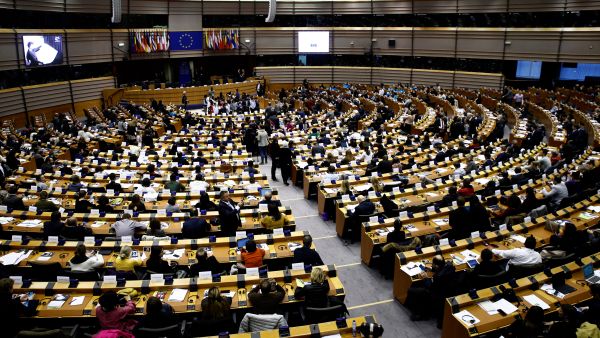Responding to the European Commission's proposals for 2016 country specific recommendations and steps under the Stability and Growth Pact, the Socialists & Democrats in the European Parliament welcomed the fact that the European Commission is keeping its focus on strengthening economic growth based on productive investments and targeted reforms.
The S&Ds noted that the situation of public finances in Europe is gradually improving thanks to an on-going recovery, but much more investment is still needed, especially in the countries hardest hit by the recent economic crisis. S&D MEPs therefore appreciate that the Commission has refrained from proposing sanctions on member states in relation to the pace of deficit and debt reduction. Now is the time to accelerate the catch-up process within Europe and strengthen domestic demand, not to crush a fragile recovery.
Maria João Rodrigues, S&D vice president for economic and social policies and the Parliament's rapporteur on the 2016 Annual Growth Survey, said:
"The Commission seems to be listening to the Parliament and understand that the road to prosperity leads through future-oriented investments and reduced inequalities, not through blind cost-cutting. Europe's economy is recovering from the long crisis thanks to stronger domestic demand: governments are regaining some margin for necessary investments and people are spending more thanks to greater self-confidence. Higher growth is the right way to reduce deficits and debts. Renewed austerity would only do harm at this stage.
"Thanks to us Socialists & Democrats, a new understanding of reforms is gaining ground: we need modern public administration, good education, investment in jobseekers' skills, good-quality childcare, accessible healthcare and fair taxation. These are the real, progressive reforms which will enable people to do business and create prosperity based on fair competition. The Commission is finally recognising that de-regulation and precarious working conditions will not bring much good to Europe.
"We will of course review the proposed country-specific recommendations carefully and we will press the Commission on points where it has not reflected the Parliament's view sufficiently. We will ask about reforms for greater energy and resource efficiency, which are largely missing from the Commission's package but very important for a sustainable economy. We will also push for more action on fighting tax avoidance and ask for proper social impact assessments of economic policies. Finally, we will insist with the Commission and finance ministers that high current account surpluses should be reduced through higher public and private investment: European savings should be channelled to Europe's real economy."
Alfred Sant, the Parliament's rapporteur on the implementation of the priorities of the 2016 European Semester, added:
"The country specific recommendations published today re-emphasize the need to pursue growth friendly policies within the fiscal policy parameters that apply for the Eurozone especially. These policies need to be followed both at a European level and within national economies. Top of the list should come measures that promote new investment, both public and private.
"The current economic challenges in the EU are closely linked to the deteriorating international environment but arise as well from divergences in economic and social performance, achieved in different parts of the European Union. New and sustained investment is the best basis from which to meet such challenges."
Note to editors: the European Parliament's resolution on the economic priorities of the 2016 European Semester is available here, a report on the employment and social aspects here and a report on 2016 priorities for developing the Single Market here.
The European Commission's proposed package of country-specific recommendations is available here.








